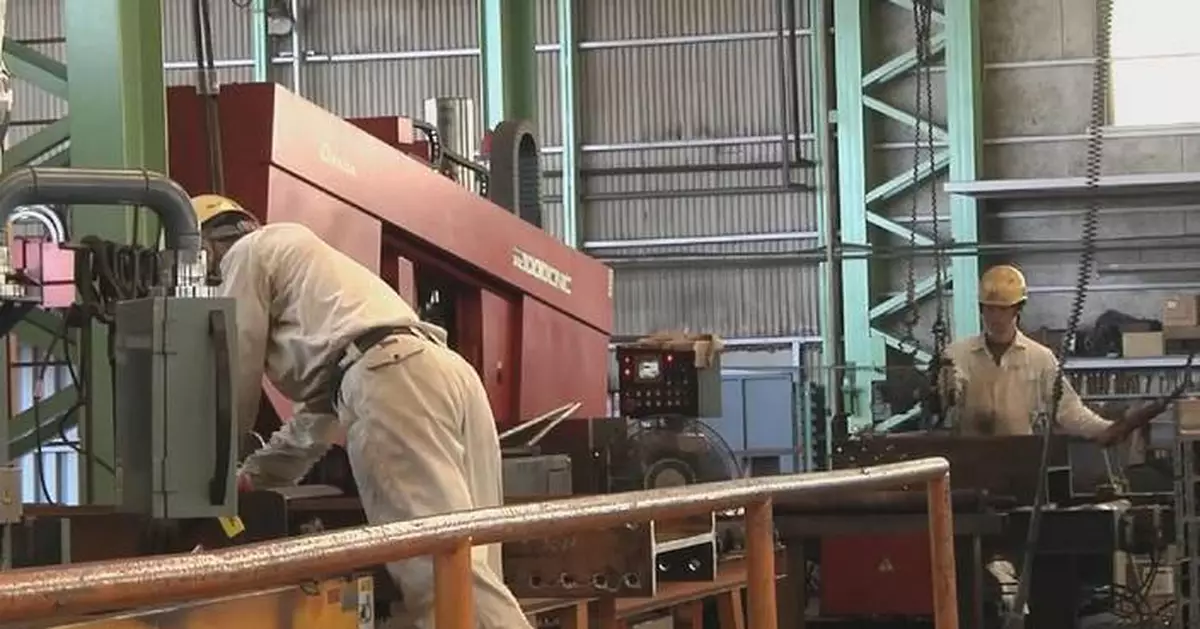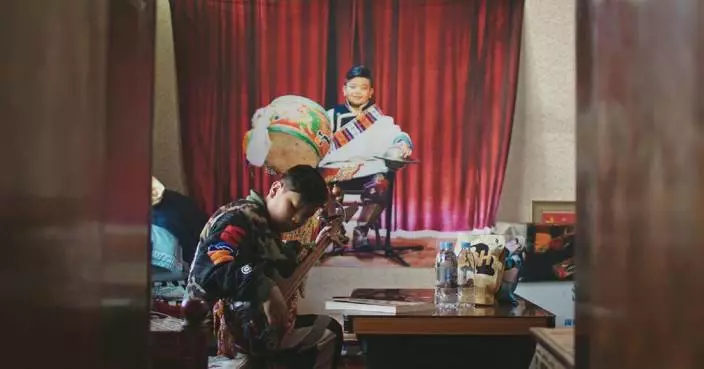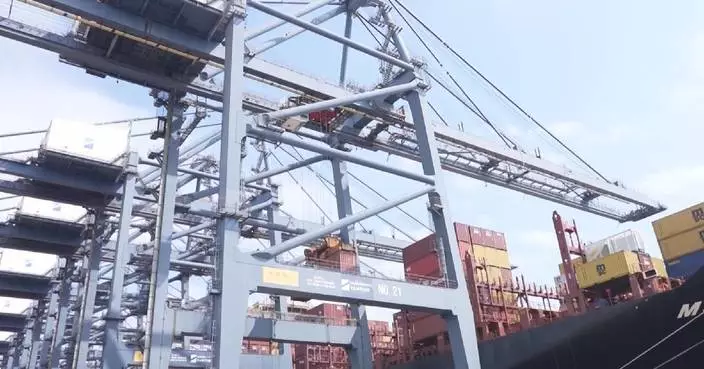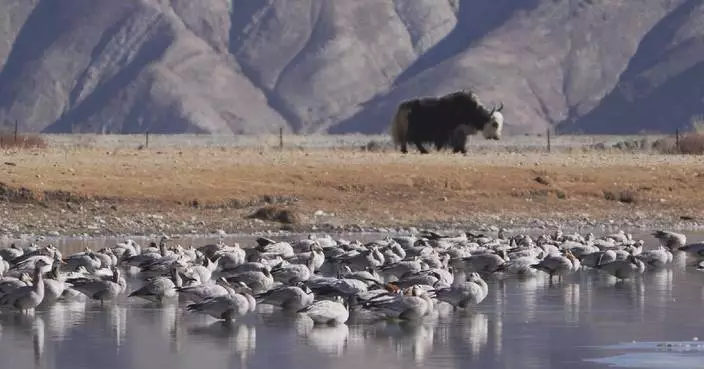U.S. President Joe Biden on Friday officially blocked Nippon Steel's proposed acquisition of U.S. Steel on national security grounds, which is a decision that could hurt the U.S. economy, said a U.S. scholar.
Biden said Friday that he had decided to block the 14.1 billion U.S. dollars sale of U.S. Steel to the Japanese steel giant, while urging the two steelmakers to "fully and permanently" abandon their plan.
In late 2023, Nippon Steel announced plans to acquire U.S. Steel, which is headquartered in Pennsylvania, one of the key swing states in the 2024 presidential election. Before Biden withdrew from the race, both he and his then-opponent, Donald Trump, had expressed opposition to the acquisition.
In an interview with the China Global Television Network (CGTN), Nicholas Economides, an economics professor from New York University, also talked about President-elect Donald Trump's possible plans once he takes office later this month.
"It is very possible, I might say it's even likely, there will be tariffs and tax incentives and other measures that President-elect Trump will initiate, but I think that overall at present, this is in my opinion, a bad move for the United States. If U.S. steel would accept the merger, then we would have a stronger company - the Japanese and the American company together," said the professor.
As President-elect Donald Trump is only weeks away from taking office, many believe Trump's mantra of tariffs and "America First" are just one big negotiating ploy.
Economides pointed out that tariff is one of the methods Trump uses to protect certain industries of the United States.
"To a large extent, it could be a negotiating tactic. In some cases, though, and specifically specific industries, it might not be a negotiating tactic. Tariffs might be a way to protect the particular industries that Trump thinks are very important for the United States," he said.
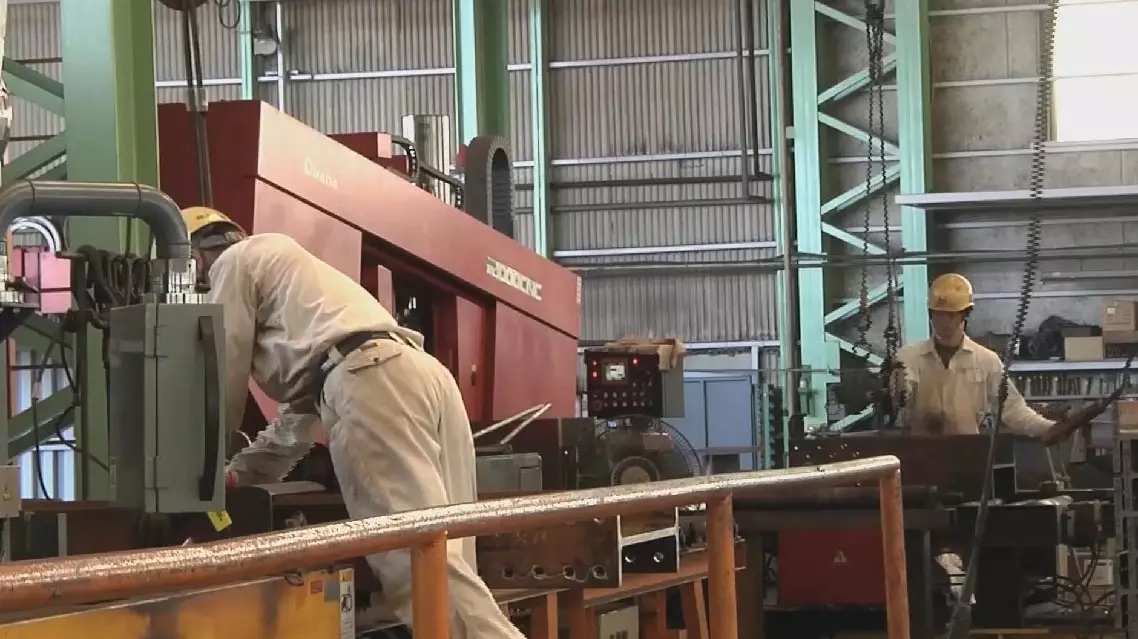
Biden's decision to block Nippon Steel's proposed acquisition of US steel plant might hurt economy: scholar
Permanent representative of Israel to the United Nations (UN) Danny Danon on Thursday denied that any discussions had occurred between Israel and the UN regarding delivering humanitarian aid to Gaza.
Danon made these remarks at the UN headquarters in response to a query from a China Central Television (CCTV) reporter about the ongoing failure to deliver humanitarian aid to Gaza.
Israel blocked the entry of goods and supplies into Gaza on March 2, following the end of the first phase of a January ceasefire deal with Hamas. It resumed attacks on Gaza on March 18.
With no food, no supplies, and no relief in sight, Gazans have been enduring a relentless fight for survival.
In response to mounting international condemnation, Israel has proposed that its military take over the distribution of aid - a move widely criticized by the international community.
Briefing a Security Council meeting on Tuesday, Under-Secretary-General for Humanitarian Affairs and Emergency Relief Coordinator Tom Fletcher noted that the UN has met for over 12 times with the Israeli authorities regarding the latter's proposed aid distribution model, yet no solution had been found.
Danon, however, stated that no discussions have taken place in recent weeks regarding the issue.
"I don't know about that. Actually I listened to Mr. Fletcher's remarks at the Security Council the other day, and I can tell you that he visited Israel but he had no discussion about that fund because it was way back and in the last few weeks there was no dialogue about that. I would expect UN officials to engage when they want to speak about issues they know how to reach us, they know how to reach the U.S. mission. We are here to engage," he said.
"They got some information from the media, I assume. But I think they should look into that and to realize that if they want to be involved, that is the way to be involved," he added, reiterating that the UN has not reached out.
In response to Danon's denial, the United Nations reaffirmed its position, standing by the public statement released by Fletcher.
"I heard what he said, and we stand by what Mr. Fletcher has said," Farhan Haq, deputy spokesperson for UN Secretary-General noted later on the day, commenting on Danon's statement.
"Mr. Fletcher gave the details," he continued.
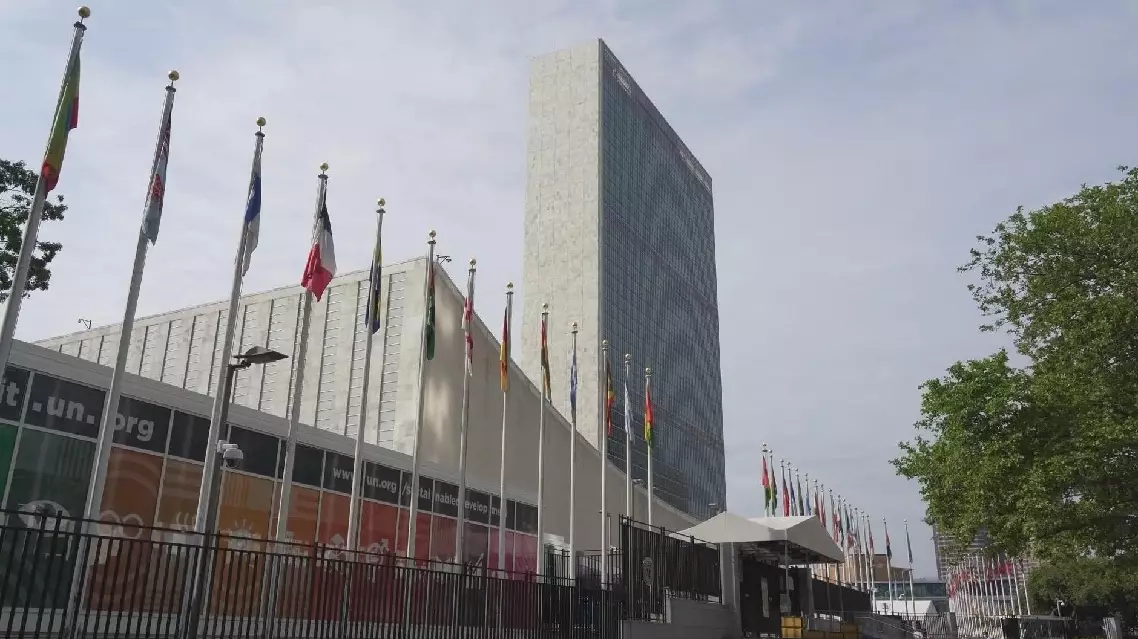
Israel envoy denies discussions with UN on enabling Gaza aid deliveries



